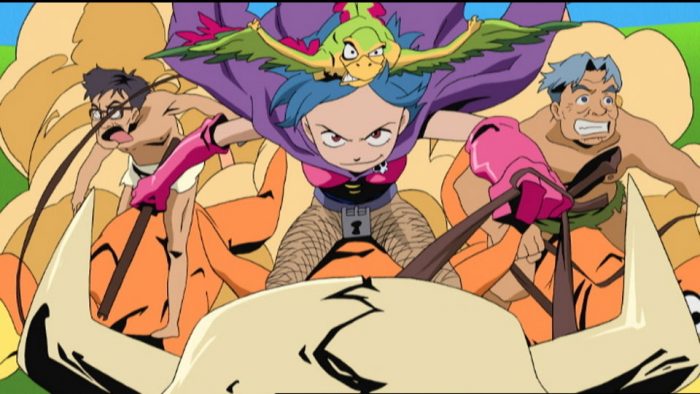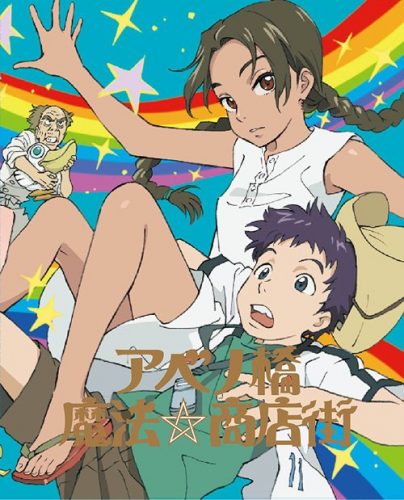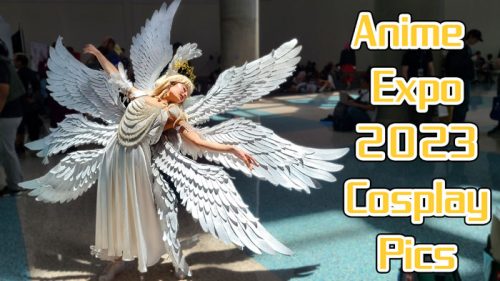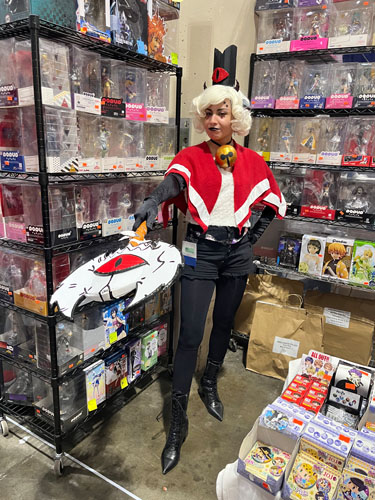
Magical☆Shopping Arcade Abenobashi
- Episodes : 13
- Genre : Comedy, Parody, Fantasy, Ecchi
- Airing Date : April 2002 – June 2002
- Producers : Gainax, Madhouse
Magical☆Shopping Arcade Abenobashi is one of the more unique anime out there, especially for its genre. Framing its ridiculous, theme-of-the-day parodies around a central storyline that intertwines historical Japanese mysticism with a timeless coming-of-age story, Abenobashi remains one of the most entertaining works from the legendary studio Gainax.
The story follows Arumi Asahina and Sasshi Imamiya, two 12-year-old childhood friends who live in the titular Abenobashi commercial district in Osaka, an aging area that soon will be demolished for new development. After losing his card collection, Sasshi’s woes continue when he finds out Arumi is going to move away to Hokkaido. The two soon find themselves faced with even greater changes when they unexpectedly get sent into a series of alternate universe Abenobashis. Each world offers a new, comedic spin on their hometown with a similar cast of characters. Arumi and Sasshi hunt down tiny, magical goblins to try and send themselves back to the real Abenobashi as the mystery of their predicament begins to reveal itself in each passing world.
Comedic fantasy - Finding the magic
While its story certainly has some serious elements, especially towards the later episodes, Magical☆Shopping Arcade Abenobashi is at its heart a comedy series writhe with the style of humour you would expect from many of the folks who had worked on FLCL the year before like Hiroyuki Yamaga and Hideaki Anno and would later found Studio Trigger such as Masahiko Otsuka and Hiroyuki Imaishi. Abenobashi is full of hilarious parodies of a variety of things like Dragon Quest-style RPGs, Star Wars, Hollywood action movies, many other anime like Fist of the North Star, dating sims, and more! The animation itself is a joy to watch with a lot of visual humor and the series also has particularly strong character design, great sound work and voice acting in both English and Japanese, and an extremely catchy OP from Megumi Hayashibara.
What sets Abenobashi apart from a lot of other parody series is its underlying plot that ties it all together into a (mostly) cohesive story, along with the elements mentioned above and an overall sense of style that makes it all the more memorable. One thing that we really appreciated in the series was its many allusions to Japanese culture, in particular to Osaka and the Osakan-dialect (which was reflected in the dub with a Texan accent), and its interesting connection to Heian-period mystic Abe no Seimei.
Emulation inaccuracies - Series’ shortcomings
Despite our earlier praise of the inclusion of a largely serious coming-of-age story woven into the episodic antics of Magical☆Shopping Arcade Abenobashi, that element is also probably the biggest cause of possible issues viewers may have with the series. Balancing madcap randomness and physical humor together with an overarching plot can be hard to achieve without causing some dissonance and Abenobashi arguably has some slight pacing issues because of it. One small nitpick might also be that the OP is made up almost entirely of footage from the first episode, although it works surprisingly well, especially the cat ear flick in time with the music, so is not really any issue. Depending on your tolerance for raunchy humor, you might find some of the jokes off-putting but we think the series comedy is in line with what anime fans know and love.
Final Thoughts


Altogether, Magical☆Shopping Arcade Abenobashi is a somewhat underrated show with a lot to offer that we think is something worth checking out for fans of comedy, especially parody, those interested in Japanese culture (in particular Osaka/Kansai region), and folks wanting to study the progression of famous anime talent like the previously-mentioned future Studio Trigger members and director Masayuki Kojima working on something decidedly different from Made in Abyss. Abenobashi is enjoyable for both its surface-level humor and coming-of-age story and its more subtle commentary on urban decay, loss of community, and anime tropes and is something we recommend experiencing!
We hope you enjoyed this mini retrospective on this classic series! Please share your experiences with Abenobashi in the comments below and stick around Honey’s for more of all things anime. For super fans you can actually go to Abenobashi Terminal Building in Osaka, a complex that includes Abenobashi Station and Abeno Harukas skyscraper that is the tallest building in Japan! Until next time, ほな、また!




